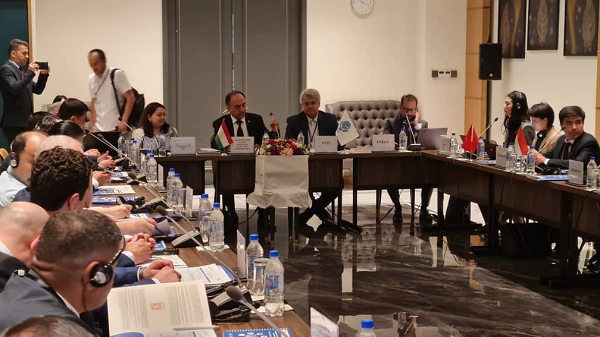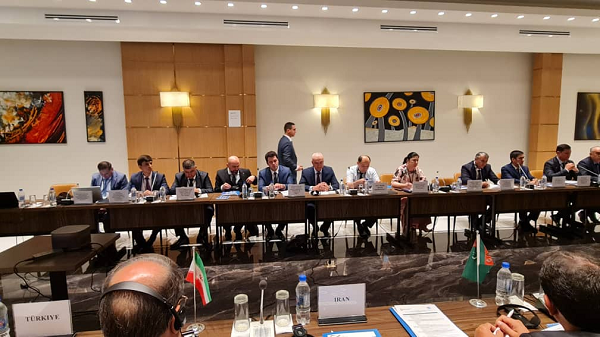On 26 May 2025, the second meeting of the High-Level Working Group on the Multimodal Corridor Tajikistan–Uzbekistan–Turkmenistan–Iran–Türkiye (TUTIT + China) took place in Dushanbe.
Organized by the Ministry of Transport of Tajikistan, the meeting was supported by the “Trade Facilitation in Central Asia” project of the German Society for International Cooperation (GIZ) and the Economic Cooperation Organization (ECO).
Representatives from ECO member countries—including Tajikistan, Iran, Kazakhstan, Kyrgyzstan, Pakistan, Turkmenistan, Türkiye, and Uzbekistan—gathered to discuss the development and promotion of this international transit corridor. Observers included representatives from the Ministry of Transport of the People’s Republic of China, the Regional Center for Transport Diplomacy, German Agency for International Cooperation (GIZ), UNECE, and the International Road Transport Union (IRU).
The initiative aims to enhance cargo transportation and streamline trade procedures, particularly benefiting landlocked countries.
The meeting’s agenda addressed several critical areas, including:
- digitalization roadmap for freight transport;
- tariff structures and optimal routing;
- infrastructure development priorities; and
- planning a test-run to identify operational bottlenecks and logistical challenges.
Speaking at the opening session, the Minister of Transport of Tajikistan, Azim Ibrokhim, emphasized his country’s commitment to strengthening transport and logistics as a means of fostering trade and economic integration across the region.
He underscored the importance of developing intermodal and multimodal transport corridors for cross-border and transit services, viewing them as essential for sustainable economic growth and expanding logistics capabilities.
To achieve this, he called for harmonizing customs and border procedures to facilitate the seamless movement of people and goods.
Additionally, he proposed digitalizing transit documents to enhance efficiency and transparency, along with introducing “green lanes” for TIR-EPD at checkpoints. According to him, such measures would improve trade security, reduce transit times, alleviate transport congestion, and lower CO2 emissions.
Mr. Alireza Mahmoudi, Director for Transport and Communications at the ECO Secretariat, outlined the initiative’s key objectives, including: facilitating cargo movement via road and rail; enhancing the efficiency of international freight traffic; and strengthening transport & trade links across the ECO region.
He emphasized the importance of infrastructure upgrades, digital integration, the harmonization of operational procedures, and the establishment of common tariffs to ensure seamless transit along the corridor.
The first meeting of the Working Group took place in Dushanbe on 21 September 2023.
This High-Level Working Group was established based on the recommendations of the Ankara Declaration, adopted at the 11th Meeting of ECO Ministers of Transport on 2 February 2022, and the resolutions of the 33rd ECO Regional Planning Council Meeting. ///nCa, 28 May 2025

